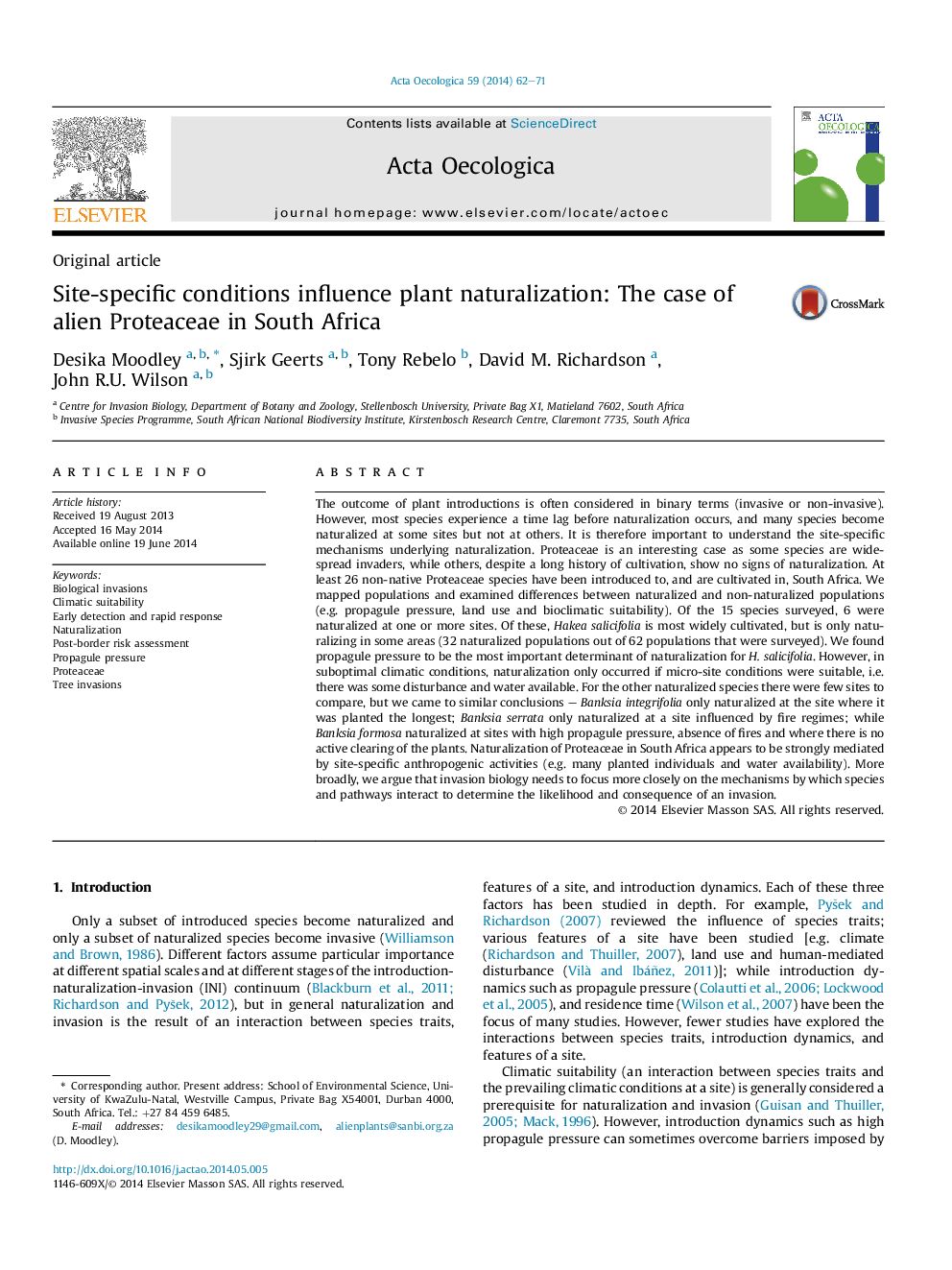| کد مقاله | کد نشریه | سال انتشار | مقاله انگلیسی | نسخه تمام متن |
|---|---|---|---|---|
| 4380989 | 1617712 | 2014 | 10 صفحه PDF | دانلود رایگان |

• We look at how the mechanisms of naturalization vary between species, sites, and introduction dynamics.
• There is a mismatch in climate between where Hakea salicifolia is widely planted and the conditions in its native range.
• Suitable micro-site conditions and high propagule pressure predicts naturalization of H. salicifolia.
• Similarly, site-specific activities such as water availability, many planted individuals and fire influences naturalization of other Proteaceae species.
• This study demonstrates the importance of an interaction between site and species on invasion outcomes.
The outcome of plant introductions is often considered in binary terms (invasive or non-invasive). However, most species experience a time lag before naturalization occurs, and many species become naturalized at some sites but not at others. It is therefore important to understand the site-specific mechanisms underlying naturalization. Proteaceae is an interesting case as some species are widespread invaders, while others, despite a long history of cultivation, show no signs of naturalization. At least 26 non-native Proteaceae species have been introduced to, and are cultivated in, South Africa. We mapped populations and examined differences between naturalized and non-naturalized populations (e.g. propagule pressure, land use and bioclimatic suitability). Of the 15 species surveyed, 6 were naturalized at one or more sites. Of these, Hakea salicifolia is most widely cultivated, but is only naturalizing in some areas (32 naturalized populations out of 62 populations that were surveyed). We found propagule pressure to be the most important determinant of naturalization for H. salicifolia. However, in suboptimal climatic conditions, naturalization only occurred if micro-site conditions were suitable, i.e. there was some disturbance and water available. For the other naturalized species there were few sites to compare, but we came to similar conclusions – Banksia integrifolia only naturalized at the site where it was planted the longest; Banksia serrata only naturalized at a site influenced by fire regimes; while Banksia formosa naturalized at sites with high propagule pressure, absence of fires and where there is no active clearing of the plants. Naturalization of Proteaceae in South Africa appears to be strongly mediated by site-specific anthropogenic activities (e.g. many planted individuals and water availability). More broadly, we argue that invasion biology needs to focus more closely on the mechanisms by which species and pathways interact to determine the likelihood and consequence of an invasion.
Journal: Acta Oecologica - Volume 59, August 2014, Pages 62–71